Hidden Clinical Trials
HIDDEN CLINICAL TRIALS (ISSUE 106)
By Diane Gold
Hidden clinical trials is a real phenomenon. And, I use the word “hidden” because its opposite is “visible,” “disclosed,” “public.” With all the government regulation in the United States, the European Union and other areas; we would think that the regulations would arrange to remove drug trial misconduct.
We are sophisticated, ethical, socially minded, philosophical healers of our brothers and sisters. Right?
Not so right.
Here are 9 edicts that would insure the ethical handling of clinical trials. They would make it unnecessary and highly unlikely for any personal decisions to be made that would favor a sponsor, government, outside loyalty or trial recipient in any way so that empirically true results would prevail. It would also almost guarantee publication so that trial recipients who may have chosen to do the trial because of the added benefit of helping others, actually get to help others. And doctors who read the literature about certain drugs almost would be guaranteed that the literature they are viewing is complete literature on a particular drug.
PROPOSED EDICTS
1) Sponsors shall not have access to trial progress or results.
2) Every person who signs up for a trial shall be told the truth up front.
3) Every person who signs up for a clinical trial shall receive a government stamped copy of the final trial, or of the results as far as the trial goes.
4) All trial results, whether the trial goes to term or not, shall be published.
 5) There shall be a monitoring body for all pharmaceutical trials, government or private.
5) There shall be a monitoring body for all pharmaceutical trials, government or private.
6) The monitoring body of all clinical trials shall not be nor shall ever have been connected to the sponsor.
7) The employees of the monitoring body shall be paid an extensive salary.
8) Government trials shall be monitored by the monitoring body.
9) The monitoring body shall not know the name of the sponsor, including government trials.
THE REALITY
Unfortunately the edicts above are not clinical trial reality. Although pharmaceutical drug trial regulations are many, they are not carried out or the monitoring of their execution does not exist, strangely enough.
To date, according to Ben Goldacre in his book Bad Pharma, drug companies are the ones who pay for the trials. Here’s a quote from the book, also used in an article by Forbes,
 “Drugs are tested by the people who manufacture them, in poorly designed trials, on hopelessly small numbers of weird, unrepresentative patients, and analyzed using techniques which are flawed by design, in such a way that they exaggerate the benefits of treatments.”
“Drugs are tested by the people who manufacture them, in poorly designed trials, on hopelessly small numbers of weird, unrepresentative patients, and analyzed using techniques which are flawed by design, in such a way that they exaggerate the benefits of treatments.”
Most of Bad Pharma talks about the fact, though, that trials are not published all the time and put patients at risk by non-publications. He was inspired to write the book in the first place when, after reading all the published research on an approved drug, his prescribing it to his patient based on the facts that were public, led to patient complications that could have been avoided if all negative results had been published.
OUR RIGHT TO INFORMATION
 What Henry I. Miller says in his Forbes article, taken from his experience as an FDA medical officer, is that many drug studies that are not published are not negative but inconclusive. What I say is there should be some sort of very accessible bank to everyone, patients, friends of patients and medical personnel, alike, with all study results, so that those who are evaluating a drug, whether taking it or prescribing it, can make the most informed decision based upon all previous experience that anyone has had with it, regardless of why its results may not have been published.
What Henry I. Miller says in his Forbes article, taken from his experience as an FDA medical officer, is that many drug studies that are not published are not negative but inconclusive. What I say is there should be some sort of very accessible bank to everyone, patients, friends of patients and medical personnel, alike, with all study results, so that those who are evaluating a drug, whether taking it or prescribing it, can make the most informed decision based upon all previous experience that anyone has had with it, regardless of why its results may not have been published.
Plus, having a transparent archive would insure that drug companies, politicians (who support drug companies for political contributions) and editors of medical journals would not be in control of what becomes available information. Unfortunately, more medical and lay people hear about medical journal reviews; but, doctors who are prescribing and patients who diligently do research on behalf of themselves would have a complete overview from which to  make as informed decision as possible about any drug or treatment with the transparency factor in place.
make as informed decision as possible about any drug or treatment with the transparency factor in place.
It’s pretty complicated as to whether a trial is negative or whether a trial is inconclusive. But all work should be available, in fairness to the patients who give their bodies for the trials.
ISN’T IT OUR RIGHT TO KNOW?
 This reminds me of the waiver to a clinical trial I considered. One of the questions they asked is,
This reminds me of the waiver to a clinical trial I considered. One of the questions they asked is,
“Do you want to give your permission for us to use your DNA in future studies?”
I asked about whether I would have access to track where it went and the outcome it achieved. Of course, the researcher said they could not include that caveat. Based on not knowing the ethics of the users of my DNA and the fact that there might not be transparent results of its use, I declined, although I considered the opportunity to contribute to humanity an honor and my decision to say no weighed heavily on my heart.
I believe it is our right to know.
BIAS
Getting back to parameters for fair drug protocols, here’s a question.
“Do we have the exact same interpretation about an altercation at school that involves our child as the same situation when our child is not involved?”
Of course, the answer is a big, whopping,
“No,”
Even when we are trained specifically for this situation, it is nearly impossible to keep our emotions out of it.
This comparison is similar to a drug company and its bias toward the drug trial it sponsors, akin to its offspring or child. We are human, and, therefore, have biases toward our own.
CONCLUSION
What can we do about hidden clinical drug trials?
We can be aware that all information may or may not be reported to anyone outside the sponsoring drug company. We can express our concern to our friends, our doctors and to drug companies.
We put up with common ways of corporations because we want their services. If we are more demanding of what we deserve and demand an end to hidden drug trials, the breakthroughs in pharmaceuticals will be more meaningful, more honest and more healthful.
ACTION STEPS
Here are several action steps for the concerned human, which I know we all are:
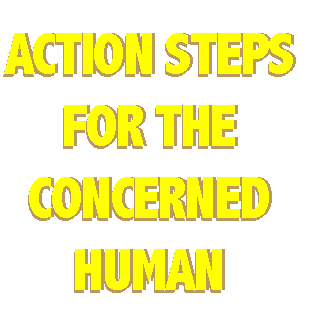 1) Ask to see the literature on any drug that you are considering. This means the actual data on the drug, rather than a consumer brochure.
1) Ask to see the literature on any drug that you are considering. This means the actual data on the drug, rather than a consumer brochure.
2) Don’t be intimidated by any medical professional who tells you s/he wants to start you immediately on some drug – unless your life is immediately at risk – to the point where you agree to a drug without knowing its information.
3) Take excellent control of your own health care. After all, if you won’t, who will? This means review the literature on any prevention, disease or drug that may be part of your life.
4) Make your own informed decision on whether or not you CHOOSE to accept a recommended drug, drug trial or therapy of any kind.
5) Lastly, survey the drug manufacturers who are involved in any drug you may be considering taking. If a drug has already been approved, ask whether you can see the data of trials that has not been published. If there is a clinical trial, ask the following:
a) Do you register this drug trial through a government agency, and which one?
b) Is there a document I can have that mentions this registration?
c) Do you post the results of this drug trial, and where?
d) Is there a document you can give me that mentions this posting?
e) If this trial does not go to completion, will the information at the time it ends be posted?
f) Do you have ongoing access to the testing results during the trial?
g) Do you have the right to make modifications during the trial?
h) If I participate in the trial, may I personally receive results of the trial I am entering through my referring medical professional?
FINAL NOTE
 In 2007, the FDA Amendment Act required all trials of any drug or device must be registered. Also, for a drug to be approved, its results must be posted to clinicaltrials.gov within a year of the end of the trial.
In 2007, the FDA Amendment Act required all trials of any drug or device must be registered. Also, for a drug to be approved, its results must be posted to clinicaltrials.gov within a year of the end of the trial.
According to a paper by A.P.Prayle et al, BMJ 2012;344:d7373, that looked at compliance:
The paper included a partial sampling of trials. Of those trials required to be posted; only 1 in 5 trials had been reported; next, the daily fine for non-compliance of reporting is not high enough to be meaningful to a drug company that makes $4 billion a year per drug (the fine is $10,000 per day/$3.65 million yearly); and very surprisingly, no fine has yet been assessed to any drug company for not posting their results.
One last bit of info that makes the pharmaceutical system shockingly cloaked is this. According to rules that are different in every country, referenced in Bad Pharma; drug companies apply for authorization to use a drug for a specific purpose with a specific market, such as using a drug for adults with depression. The clinical trial data for adults, for an example market, with depression, for an example disease, must be furnished to get approval. If clinical trials are performed on children, a different example market, for the same or different disease, and the company does not apply for authorization to use the drug on children with that disease, the drug companies are not required to report data or side effects. Also, they’re not required to report results if their trial is done out of country.
Doctors often prescribe “off label,” which means using a drug originally approved for one market or disease, but now being used for another. In one such case, one of the major 10 drug companies did not report that suicide was a suicide effects in children for 10 years. Why? It wasn’t a requirement, and revealing this would have cut their sales volume. They knew about the side effects through hidden clinical trials that could have warned doctors not to prescribe the drug to children.
Don’t we all have the right to know?
FEEDBACK
Please leave a comment and LIKE us.
DIANE GOLD, AUTHOR
Diane Gold, Founder of Warriors of Weight, Turning Habits Into Health, is a mentor in tai chi, kung fu and meditation, a music, fitness and stress expert, dedicated mom, studying plant-based nutrition and habit change.
The topic of clinical trials being hidden is rather controversial. She says,
“It’s a matter of pride, not money. It’s more advantageous to announce the results of every clinical trial. It is certainly the only ethical thing to do, even though it may not positively affect the bottom line of the drug company, immediately.
“What a great PR opportunity, though. Any of the major pharmaceutical houses first to comply could take the huge opportunity directly in front of them to gain brand dominance. By being the first company to regularly register and report drug trial outcomes, they would be trusted and save money because this would be free advertising.
“If we remind the drug companies that they would gain huge loyalty and trust by making their clinical trials transparent, they might be interested.”
EXTRA ACTION STEP
“Give a drug company’s marketing department a call this week with the reminder. They just might be interested in listening to all of us.”

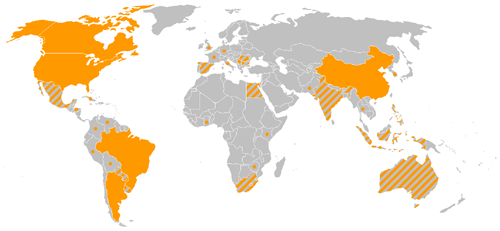 For years, we have been ingesting food that has been modified to yield bigger crop, faster growth, more eye-appealing shape, resist or repel certain insect infestation and more.
For years, we have been ingesting food that has been modified to yield bigger crop, faster growth, more eye-appealing shape, resist or repel certain insect infestation and more. Of course, governments are corporations. They deal with other corporations. When one corporation does a business deal with another, a purchase or transaction is made.
Of course, governments are corporations. They deal with other corporations. When one corporation does a business deal with another, a purchase or transaction is made.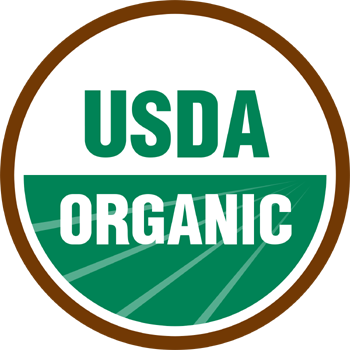 1.
1.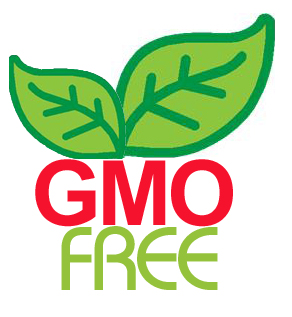
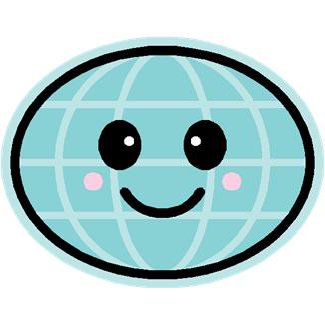 Old habits die hard. Now that our eyes are opening, and many of us are aware of the uncertainties of consuming GMOs, let’s work on changing our habit of consuming without asking. Let’s be diligent so that we can create healthier habits to pass on to our children and to theirs. The more of us who require non-GMO food, the less expensive it will be to certify it as “non-GMO” by label on a package or bushel of produce.
Old habits die hard. Now that our eyes are opening, and many of us are aware of the uncertainties of consuming GMOs, let’s work on changing our habit of consuming without asking. Let’s be diligent so that we can create healthier habits to pass on to our children and to theirs. The more of us who require non-GMO food, the less expensive it will be to certify it as “non-GMO” by label on a package or bushel of produce.





